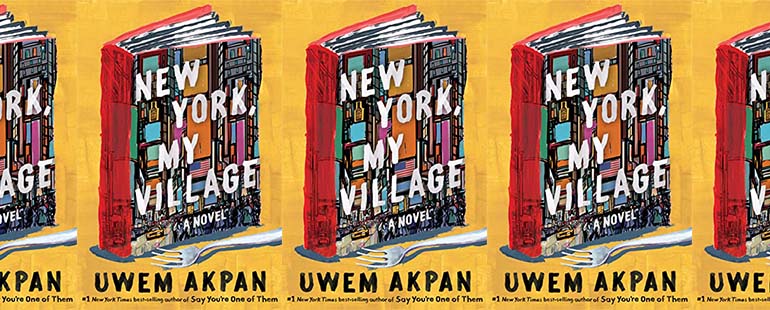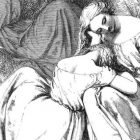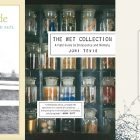Storytelling in New York, My Village

After a long and humiliating visa application process, Ekong Otis Udousoro, the narrator of Uwem Akpan’s debut novel, New York, My Village, published earlier this month, leaves his home in Ikot Ituno-Ekanem in the Niger Delta of Nigeria for a four-month stint at Andrew & Thompson, a publishing house in New York City. The managing editor of Mkpouto Books in Uyo, he has been awarded a Toni Morrison Fellowship for Black Editors and will be learning about the operations of an American publishing house while editing an anthology of stories on the Biafran War. “This ethnic war rang deep in my soul,” he says: “I was born a year into it, 1968, hence my mother naming me Ekong, which means ‘War.’” Nearly fifty years have passed since the onset of the war, but its rifts and traumas continue to disrupt personal and community relationships, even as the stories about what actually happened during the war remain secret. As a member of a minority group, the Annang, who were caught up in the Biafran side of the war, Ekong wants the stories of his and other minority Nigerian peoples to be told. The story of his months living in Hell’s Kitchen and working in the “white bubble” of New York publishing is a story about storytelling—and not just the stories that make it past the gatekeepers to publication, but also the stories that are passed along in the conversations, letters, phone calls, photographs, and videos that flow throughout New York City and New Jersey and to and from Ikot Ituno-Ekanem.
“It was to be my first time in America. I had seen a lot of America on TV and spoke American English, so it was not going to be that complicated,” says Ekong at the outset. Such declarative and optimistic statements are for him typical, though of course in this case his confidence turns out to be misplaced, as he begins to discover during the visa application process when the interviewer who reviews his first application questions whether the Annang people even exist. Reading the novel is a disorienting experience, as again and again Ekong’s initial interpretation of people and events turns out to be too simple or inaccurate. For example, Gregory Lucci, the man who sublets an apartment to Ekong, at first appears to be “a kind old man” with a “weak, wavering voice” and “a comforting, trusted grandfatherly presence in a strange land”; he turns out instead to be a manipulative racketeer. Meanwhile, Ekong’s neighbors, Jeff and Brad, at first appear to be hostile; in part as a result of their shared combat against a never-ending bedbug infestation in their building, they turn out in the end to be counted among Ekong’s closest friends in the city.
Ekong’s confusion is most fraught in the workplace. Although his colleagues initially appear to be “so nice and sweet,” he unexpectedly feels nervous there right from the start. On the first morning of his fellowship, he notes, “Slowly it began to register that it was the first time in my life I had inhabited this kind of white space. . . . It was not the New York I had come to know in the past two days. When I looked out the window, my sight was beaten back by fog, and when I glanced at my body it was as though I myself had become darker.” When he later tells his childhood friend, Usen Umoh, who now lives in the Bronx with his family, that he is the only Black person at the company, Usen warns him that “being the only one is a bad experience.”
The difficulties of “being the only one” become evident about two weeks into his fellowship at his first editorial meeting. At the beginning of the meeting, Ekong feels “really special in my gray minimalist batik attire, top-and-bottom, as though I were representing the entire Black race.” Soon enough, as he senses the attention he is getting from his colleagues regardless of whether he shares his opinion on the manuscript under discussion, he feels the pressure of seemingly being asked to represent so much on his own. Voices begin to buzz in his head, asking: Would they have had a whole different or smoother conversation if they didn’t need to use my face as the register of political correctness? And: But what are you even doing at this table? As the meeting progresses, Angela and Jack, representing the marketing and publicity departments, become more aggressive. “Market forces aren’t respecters of diversity,” says Jack at one point, “We need to run this not as a charity but as a business.” Angela then more or less personally attacks Ekong (“And, luckily, we don’t have these African tribal wars and corruption that rigs even the number of tribes so no one knows whether they even exist”) during a discussion of a novel about the Tuskegee experiments—before Ekong has said a word either for or against it.
The next day, after Jack and Angela apologize to Ekong, he happens to see them on the sidewalk and hears Jack’s ranting on the phone to his friend, a “super-agent” named Chad. While Angela laughs, Jack complains about “our fucking African Fellow who’s using diversity to twist. Every. Damn. Thing. . . . You know that Nigerian fucker monopolized the whole damn meeting, passive-aggressively keeping people from saying what they thought. We couldn’t breathe.” This vision of Ekong as a “puppeteer” is nothing more than a projection of Jack’s own mind. Ekong keeps running into these projections. They are sometimes mostly benign, as when his neighbors see him scratching his bedbug-afflicted back against the stair rails and believe that he is praying in a “solemn African religious ritual.” They are at other times humiliating and even dangerous, as when he and Usen’s family are told never to return to the Catholic church in New Jersey where they have attended Mass with Tuesday Ita, a compatriot who left Ikot Ituno-Ekanem in 1975 and is now bleaching his skin and passing for white. Evidently, at the parish priest’s request, two cops trail and surveil them on the trip from the church to the train station and then (after Ekong embarks on his train to Manhattan) partway to the Bronx.
Information and gossip are shared between New York City and Ikot Ituno-Ekanem as though their residents were next-door neighbors instead of more than five thousand miles apart, and so news of the events in New Jersey reaches Ikot Ituno-Ekanem by evening. By this time, Ekong says, “our village had as many versions of what had happened as there were palm trees in my grandfather’s plantation.” Soon, he learns that village youths are “mobilizing neighboring villages to ‘call white America’s bluff’” and demanding that Father Kiobel, the local parish priest, “enact ‘equal and mutual and reciprocal’ banishment of our white parishioners, for peace to reign.” To counter the potential riot, Ekong and Father Kiobel use videos and photos to collaborate in telling a different—and more accurate—story about what happened at the church in New Jersey. The parish priest had demanded that Ekong and his friends never return, yes, but many of the parishioners (unaware of what their priest had said in a private meeting in the sacristy) had embraced them and invited them back. Father Kiobel holds a Thanksgiving Mass during which his American parishioners apologize for the behavior of their compatriots—“Hearing of our white wickedness in New Jersey, how could we abandon you in Ikot Ituno-Ekanem?”—and, most poignantly for Ekong (who receives video clips of the event from his wife, Caro), Father Kiobel begins to tell the story of his childhood during the Biafran War.
Father Kiobel’s story of the Biafran War is one that has been hinted at through Ekong’s lifetime but never told; so, too, is Tuesday Ita’s. Finally hearing their stories of horror and trauma, Ekong begins to understand “the living confusion that is Tuesday Ita” (as Usen describes him) as well as why Father Kiobel wears expensive liturgical vestments and so frequently buys new clothes. These stories, like the stories Ekong’s colleagues and neighbors tell of their own childhoods and experiences of war, disrupt the distortions based on first impressions and assumptions. Not all stories lead immediately to reconciliation; a new rift opens up between Father Kiobel and Tuesday, for example, though Father Kiobel hopes that “someday Tuesday will realize that both of us were victims. . . . Maybe we can hear each other for the first time.” Father Kiobel entrusts Ekong with his personal stories, he says, “Not to discourage you, not to rile you up, either, but to open up paths to healing our peoples.” This hope is what’s at stake for Ekong, too, in fighting against the whiteness of American publishing in favor of “fresh, unapologetically Black books.”
This piece was originally published on November 30, 2021.



